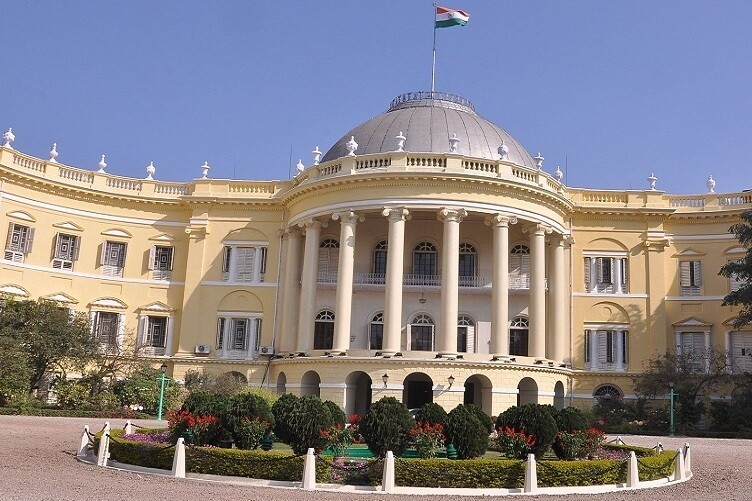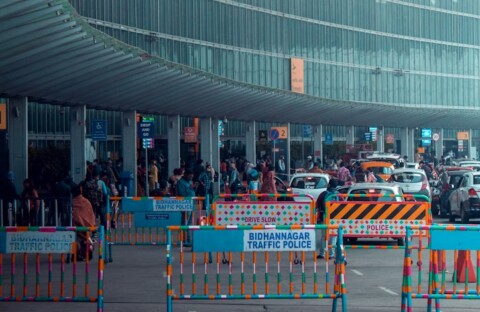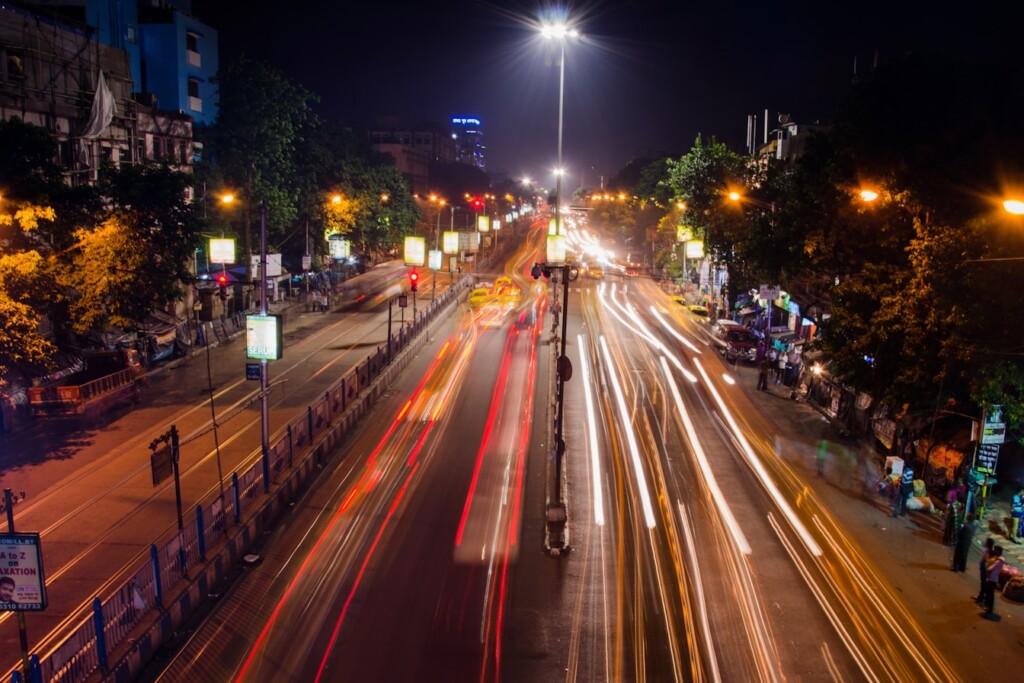The recent declaration by West Bengal Governor C.V. Ananda Bose regarding his security concerns has set off a flurry of discussions and debates. His apprehension about the Kolkata Police contingent stationed at Raj Bhavan in Kolkata has raised serious questions about the state’s political dynamics and law enforcement’s role in the Governor’s security. This development comes amidst a backdrop of ongoing tensions between the state government and the Governor’s office, adding a new layer of complexity to their relationship.
Governor’s Statement and Immediate Reactions
The Governor’s Security Threat
Governor C.V. Ananda Bose’s assertion that he feels insecure with the current contingent of Kolkata Police at Raj Bhavan has significant implications. His statement, made on June 20, highlighted his belief that the presence of the current officer-in-charge and his team poses a threat to his personal security. This declaration came just days after he ordered the police personnel to vacate Raj Bhavan, a directive that has yet to be followed.
The Chief Minister’s Response
Governor Bose’s concerns have not gone unnoticed. He has communicated his sense of insecurity to West Bengal Chief Minister Mamata Banerjee, although he claims that no action has been taken in response to his complaints. This situation has led to a standoff, with the police personnel still on duty at Raj Bhavan despite the Governor’s clear directives.
Underlying Tensions and Historical Context
The Governor-State Government Relationship
The strained relations between the Governor’s office and the state government in West Bengal are not new. Historically, the Governor’s role has been contentious, often caught in the crossfire of state and central politics. This latest episode adds to a series of incidents where the Governor’s actions and statements have clashed with the state’s administration, leading to political and administrative friction.
The Importance of Raj Bhavan
The Governor’s residence, Raj Bhavan, is not just a symbolic seat of power but also a critical location for the state’s governance. Ensuring the security of such a high-profile office is paramount, and any perceived lapse can have far-reaching consequences. Governor Bose’s concerns, therefore, must be viewed within this broader context of state security and political maneuvering.
Specific Allegations of Snooping and Influences
Claims of Surveillance
Sources from the Governor House have indicated that Mr. Bose’s apprehensions stem from more than just a general sense of insecurity. He has accused the police personnel at Raj Bhavan of constant snooping, suggesting that their actions are influenced by external parties. This allegation of surveillance raises serious ethical and legal questions about the role of law enforcement in the Governor’s residence.
External Influences and Security Breaches
The idea that police actions within Raj Bhavan could be directed by “influencers” outside the official chain of command is alarming. It implies a breach of trust and potential misuse of power, which could undermine the integrity of the state’s governance. Governor Bose’s insistence on removing the current police team can thus be seen as a move to reclaim autonomy and secure his office from undue influence.
Responses from the State Government and Law Enforcement
Balancing Act
The response from the state government and Kolkata Police to Governor Bose’s allegations has been cautious yet firm. While there has been no immediate removal of the police personnel, officials have stressed the importance of maintaining law and order and ensuring the Governor’s security. The delicate balance between respecting the Governor’s wishes and upholding the state’s administrative protocols is at the core of this response.
Chief Minister Mamata Banerjee’s Silence
Chief Minister Mamata Banerjee’s silence on the matter, as noted by Governor Bose, adds another layer of complexity. It suggests a calculated approach, possibly aimed at avoiding an escalation of tensions while assessing the implications of the Governor’s demands. The state’s law enforcement agencies, meanwhile, face the challenge of addressing the Governor’s concerns without compromising their operational integrity.
Broader Implications for State Politics and Governance
Political Dynamics
This standoff between Governor Bose and the state government has broader implications for West Bengal’s politics and governance. It highlights the persistent friction between state and central authorities, with the Governor often perceived as a representative of the central government. This perception can lead to a clash of interests, especially in a politically charged environment like West Bengal.
Trust and Governance
Governor Bose’s security concerns also bring to light the critical issue of trust between the state’s executive and law enforcement. Any erosion of this trust can have serious repercussions for governance and public confidence in state institutions. Addressing these concerns transparently and effectively is crucial for maintaining stability and ensuring the smooth functioning of the state’s administrative machinery.
The Way Forward: Potential Resolutions and Strategies
Dialogue and Transparency
Resolving the current impasse requires a multifaceted approach. Firstly, there must be an open and transparent dialogue between the Governor’s office and the state government. Establishing clear communication channels can help address specific security concerns and build mutual trust. Additionally, an independent review of the security arrangements at Raj Bhavan, possibly involving central agencies, could provide an impartial assessment and suggest necessary adjustments.
Strengthening Security Protocols
Strengthening the protocols for the Governor’s security while respecting the autonomy of the state police is another essential step. Clear guidelines and oversight mechanisms can help ensure that the Governor’s residence remains secure without unnecessary interference or surveillance. Such measures can also help prevent similar conflicts in the future by establishing a framework for cooperation and accountability.
West Bengal Governor Security Threat: An In-Depth Look
Security Concerns at Raj Bhavan
The security concerns raised by West Bengal Governor C.V. Ananda Bose regarding the Kolkata Police contingent at Raj Bhavan have sparked widespread discussion. His claim of feeling insecure due to the current officer-in-charge and his team points to deeper issues within the state’s political and security apparatus.
Implications for Governance
The Governor’s office holds a significant position within the state’s governance structure, and any perceived threat to its security is a matter of serious concern. Governor Bose’s decision to order the police personnel to vacate Raj Bhavan underscores the gravity of his apprehensions. However, the continued presence of the police team despite this order raises questions about the effectiveness of communication and response mechanisms between the Governor’s office and the state government.
Allegations of Snooping
Governor Bose’s allegations of snooping and external influences on the police personnel add a layer of intrigue to the situation. If true, these claims suggest a breach of ethical conduct and a potential misuse of power, which could have far-reaching implications for the state’s governance. Addressing these allegations transparently and thoroughly is crucial to maintaining public trust in the state’s institutions.
State Government’s Response
The state government’s response to the Governor’s concerns has been measured, focusing on maintaining law and order while ensuring the Governor’s security. However, the lack of immediate action to remove the police personnel as requested by Governor Bose indicates a complex balancing act. The state must navigate the delicate relationship between respecting the Governor’s autonomy and upholding its administrative protocols.
Moving Forward
Moving forward, open dialogue and cooperation between the Governor’s office and the state government are essential. Establishing clear guidelines and oversight mechanisms for the Governor’s security can help prevent similar conflicts in the future. Additionally, an independent review of the current security arrangements at Raj Bhavan could provide an impartial assessment and recommend necessary adjustments.
Conclusion
In conclusion, the security concerns raised by Governor C.V. Ananda Bose highlight the need for effective communication, trust, and transparency between the state’s executive and law enforcement. Addressing these issues promptly and thoroughly is crucial to maintaining stability and ensuring the smooth functioning of West Bengal’s governance.
FAQs
What are the specific security concerns raised by West Bengal Governor C.V. Ananda Bose?
Governor C.V. Ananda Bose has expressed apprehensions about the presence of the current Kolkata Police contingent at Raj Bhavan, claiming that their presence poses a threat to his personal security. He has also alleged that the police personnel are involved in constant snooping on his activities, potentially influenced by external parties.
Has there been any response from Chief Minister Mamata Banerjee regarding the Governor’s concerns?
Governor Bose has stated that he informed Chief Minister Mamata Banerjee about his security concerns, but there has been no action taken in response. The state government has maintained the police presence at Raj Bhavan, emphasizing the need to uphold law and order.
What are the implications of the Governor’s security concerns for West Bengal’s political dynamics?
The Governor’s security concerns underscore the ongoing tensions between the Governor’s office and the state government. This situation highlights the challenges of balancing state and central interests, particularly in a politically charged environment like West Bengal. It also raises questions about the trust and cooperation between the state’s executive and law enforcement.
How can the security concerns at Raj Bhavan be addressed?
Addressing the security concerns at Raj Bhavan requires open dialogue between the Governor’s office and the state government. An independent review of the current security arrangements, possibly involving central agencies, could provide an impartial assessment and recommend necessary adjustments. Establishing clear guidelines and oversight mechanisms for the Governor’s security can also help prevent similar conflicts in the future.
What are the broader implications of Governor Bose’s allegations of snooping by the police personnel?
If Governor Bose’s allegations of snooping are true, it suggests a breach of ethical conduct and potential misuse of power within the state’s law enforcement. This situation could undermine public trust in state institutions and highlight the need for greater transparency and accountability in the security arrangements for high-profile offices like Raj Bhavan.
What steps can be taken to improve communication and trust between the Governor’s office and the state government?
Improving communication and trust requires establishing clear and open channels of dialogue between the Governor’s office and the state government. Regular meetings and consultations can help address specific concerns and build mutual understanding. Implementing transparent protocols and oversight mechanisms for the Governor’s security can also enhance trust and cooperation.









